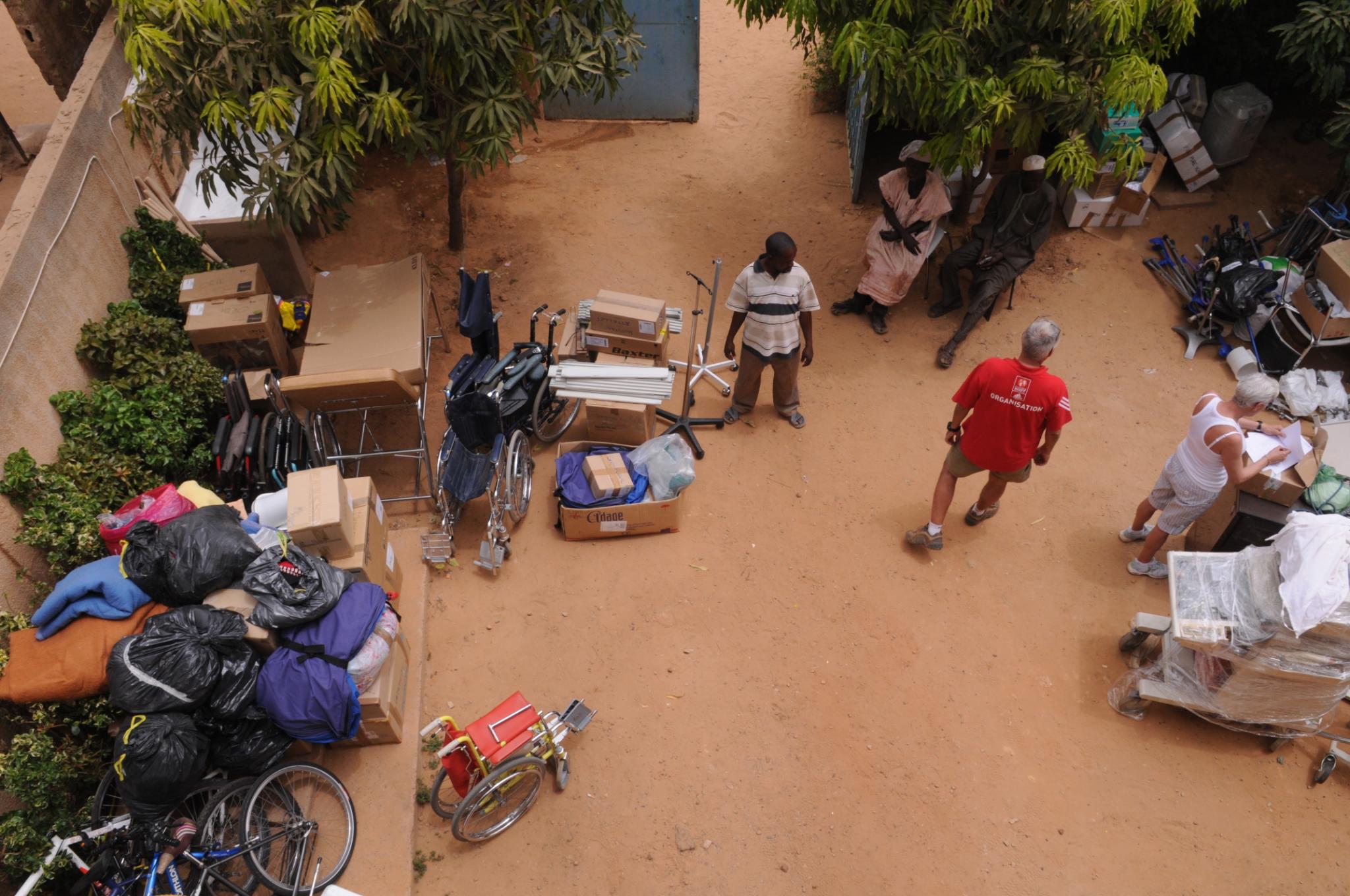As political transformation occurs across the Horn of Africa at an unprecedented pace, Abukar Arman provides a comprehensive analysis of the rapidly changing situation.
The political transformation in the Horn of Africa is arguably the most counterintuitive development in the 21st century so far. Ethiopia has steered away from implosion and, for the first time in its history, appointed an Oromo Prime Minister with an Islamic name and heritage, ending the 20-year-long conflict between Ethiopia and Eritrea. Nonetheless, Abiy Ahmed, the charismatic new Prime Minster from the intelligence sector, is yet to find a firm footing and harmony within the deeply rooted and ethnically-dominated domestic political apparatus. The sporadic ethnic-targeting violence raging in the Oromo and the oil-rich Somali region is an ominous preview.
This enormous strategic achievement and the peace and economic development potential that it inspires cannot be underestimated. Neither can the value of the psychological and emotional liberation resulting from the Ethiopia-Eritrea peace agreement that reconnected families and old friends. Having said this, from the strategic or policy perspective, it is too naïve not to question the real impetus driving this, the subsequent dramatic changes and the possible implications for each country and the region.
So far, all we have got is a bellyful of sound-bites seasoned with euphoric cheers. There has been little clarification as to the actual context; who and what is the driving force, and why with such unprecedented haste? If one must drive on the fast-lane, it is critical to keep hands on the wheel and eyes on the road.
Naturally, in politics there is no such thing as random acts of transformation; especially between two sworn enemies and most certainly in geopolitics. The strategic rivalries between the United States of America and China on the one hand and Saudi/United Arab Emirates and Turkey/Qatar on the other hand have been raising tensions if not fuelling various conflicts.
So prudence dictates that a leap of faith under these circumstances might not be the best option.

Tripartite Grand Strategy
The US is being squeezed out of Djibouti by its geopolitical rival China and the Trump administration is yet to unveil a coherent policy towards the Horn. Meanwhile, China is building its first overseas base to project its ever-growing military power. China is already well established on a trade and development front across Africa. The infrastructure and political support system for its new Silk Road are already established or in progress. Despite owning nearly 800 military bases in more than 70 countries, the Chinese expansion in the region, and indeed Africa, is giving the US what I would call a strategic vertigo.
AFRICOM still remains the floating State Department in charge of guarding US interests in the region with the same old guards – Ethiopia handling the political bidding and Erik Prince (Blackwater) and companies via the United Arab Emirates’ (UAE) DP World handling all matters intended to evade scrutiny and accountability. This may offer some perspective as to how a tiny Gulf nation became the key element through which the geopolitical landscape of the Arabian Peninsula and the Horn of Africa is redesigned.
Despite the successful international business narrative it projects, clouds of suspicion still hover over dubious multifaceted maritime enterprise. The significant ‘intelligence and security risks’ associated with the company and its Erik Prince and private military partners was one of the main reasons why in 2006 the US congress rejected a DP World deal to manage six US ports, its support of neoconservative heavyweights and Vice President Dick Cheney notwithstanding.
In addition to the $700 billion trade between Europe and Asia that passes each year through Bab al-Mandab, the European Union is determined to constrict the out of Africa migration trend by promoting and investing in what it calls regional integration to improve trade, security and good governance. Ethiopia is to be the anchoring state and IGAD is to remain the institutional shepherd with international backing. The Horn model could then be extended to the entire continent. There is only one little caveat: no Turkey, no Qatar, and certainly, no China.
Ever since the eruption of the Gulf Cooperation Council feud that led to a Qatar blockade more than a year ago, neither politics nor security has been the same in the Horn of Africa. This is especially the case in Somalia, where the competing geopolitical interests of the UAE and Saudi Arabia on the one hand and Qatar and Turkey on the other intersect. Though there are other zero-sum competitions at play in Somalia, none have brought in more cash for the disjointed politics locally known as siyaasadda kala fur-furka than the Gulf monarchs.
General Anwar Eshki is the Chairman of the Middle East Center for Strategic and Legal Studies and a close advisor to Crown Prince Mohammed Bin Salman. He is the architect of the Saudi strategic duplicity that led to the bloody Yemen war, the normalisation of its relationship with Israel despite the systematic genocide of Palestinians, and the policy to facilitate Ethiopia’s annexation of Somalia.
In a speech he delivered at the Council on Foreign Relations, the General recently argued, “Unifying the Horn of Africa under the leadership of Ethiopia” and connecting the Horn to the Arab peninsula by Al-Nour Bridge “connecting the al-Nour town of Djibouti and al-Nour town of Yemen.” The General made it clear to his audience that he spoke English but was advised, contrary to his preference, to deliver his speech in Arabic and to read it to his audience. Was the general reading the first draft of Saudi Arabia’s strategic policy toward the region or flashing reassurances to other partners?
Transformation Made Easy
When, in mid-June Shaikh Mohammed Bin Zayed visited Ethiopia, the Abu Dhabi Fund for Development deposited $3.7 billion in the National Bank of Ethiopia– an amount equal to Turkey’s investment in Ethiopia. The day after, Ethiopia’s Prime Minister flew into Mogadishu. In a matter of about three hours, and without leaving the airport compound, the PM signed an agreement with the Somali President Mohamed Abdullahi Farmajo securing Ethiopia and her behind the scene client a historic consignment- four of Somalia’s most strategic Red Sea and Indian Ocean ports. And where cash is the king, it was not too difficult for the UAE to acquire a number of ports in Somalia, Eritrea and Sudan.
In the following month, the new Prime Minister visited Asmara to meet with President Isaias Afwerki of Eritrea. On that very same day, the two sworn enemies signed a peace agreement that immediately restored diplomatic relations, and promised the imminent resumption of flight services and the use of Eritrea’s port facilities for Ethiopia.
Within weeks, the Somali President lands in Asmara to meet with President Isaias and restore diplomatic relations with Eritrea. All of a sudden, ‘Africa’s North Korea’ became the hottest destination. The rest of the IGAD member states are in line to pay their homage, despite the fact that Eritrea is officially under sanctions. Interestingly, in what seemed haphazard and an orchestrated political cover for Ethiopia—the country that spearheaded the sanctions on Eritrea with tons of disinformation—President Farmajo called upon the UN Security Council to lift the sanctions. This not only “deeply shocked” Djibouti, it also triggered a domestic backlash against a president with slipping popularity and a government considered a political apparatus to advance various international projects.
Is De-Turkification of Somalia Possible?
Ever since the Arab Spring, the UAE and Saudi Arabia have aggressively pursued a strategic objective aimed to stifle any and all Muslim Brotherhood influence due to the latter’s social and political capital on the streets that emanate from grassroots social services. Gulf monarchs consider that group and Turkey’s political ascendancy and influence on the Islamic and Middle Eastern affairs as the most serious threat to their life-long rule.
So as soon as Turkey launched a massive humanitarian and development campaign in 2011 and began to form a strategic partnership with Somalia, the UAE came on the scene for what many consider an effort to torpedo Turkey’s newly-found stature in Somalia. The UAE established the second largest embassy after Turkey in Mogadishu. It opened the Sheikh Zayed Hospital to compete with the Erdogan Hospital. By the time Turkey started to provide scholarships to train military officials, the UAE was already bankrolling various mercenary groups engaged in various clandestine operations, and trained a controversial Somali military contingent which it recently disbanded and left the weapons cache looted.
Turkey, while in alliance with Qatar, is on an entirely different scale. In a controversial campaign to settle a domestic political matter, Turkey exploited its close relationship with the Somali government to eradicate any and all institutions and individuals affiliated with the Gulen movement. Despite this, Turkey still embodies the gold standard of bi-lateral nation-building and development. With its tangible achievements and non-interference policy on Somalia’s domestic politics, the Turkish model has exposed the international aid system as corrupt and politically toxic. Though initially Qatar had a controversial start that mimicked the UAE’s, it finally settled to emulate the Turkish model and fund building roads and other essential infrastructures.
Trust but Verify
Despite all these changes, Ethiopia still has “too many conflicting interests that may compromise vital US interests” in favour of China, with which Ethiopia is economically intertwined. Could Abiy Ahmed be the person to bypass China and Turkey, which also have billions of dollars invested in Ethiopia? Any indication that he is there to ‘undo what is working for what could work’ might turn the old establishment against him and set a domino effect of regression in the region. If that is not enough to cause concern, Somalia, Djibouti and to a certain degree Eritrea each has its conflict of interest.
To level the playing field and guard against parasitical geopolitics, Somalia should demand the total withdrawal of the Ethiopian and Kenyan troops that are part of AMISOM as well as those who are illegally based in various regions in the Somali territory. And that UNSOM, the camouflaged guardian of Soma Oil and Gas interests, to close shop.
Eritrea for its part should demand an alternative to IGAD – a freshly-negotiated regional institution that grants an equal voice to each member and headquartered outside Ethiopia.
The Horn of Africa is an emerging market with great economic potential. But to turn that potential into economic success and sustainable stability, the region’s political, business, intellectual and social leadership’s aspirations must be in harmony: no foreign power or coalition of interests could secure that.
Therefore, the people of the Horn should not remain hostage to their historical enmities or to the myopic visions and corrupt ambitions of their political leaders. It is time to think big, but not recklessly. Each country must first address its domestic challenges and reconcile with itself.
Each country must come into the so-called regional integration deal sovereign and sober.
Abukar Arman (@Abukar_Arman) is a former diplomat who writes on foreign policy, geopolitics and faith.
The views expressed in this post are those of the author and in no way reflect those of the Africa at LSE blog, the Firoz Lalji Centre for Africa or the London School of Economics and Political Science.






Good article. For sure, Ethiopia dominate IGAD, but the HQ is in Djibouti
The Author’s hidden aim to elicit Turkey & Qatar as sincere partners particularly in Somali’s lens is blatant camouflage. I believe politicians in each country know better which side of the bread has a butter.